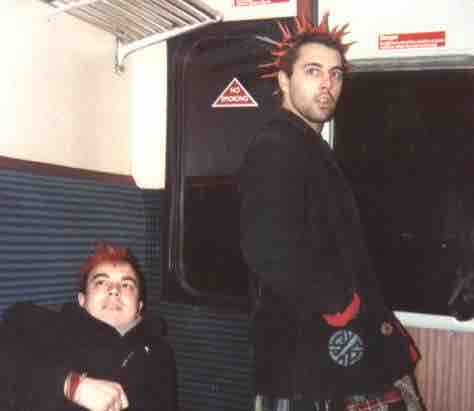The study of social deviance is the study of the violation of cultural norms in either formal or informal contexts. Social deviance is a phenomenon that has existed in all societies with norms. Sociological theories of deviance are those that use social context and social pressures to explain deviance .

Crime
The study of social deviance is the study of the violation of cultural norms in either formal or informal contexts. Social deviance is a phenomenon that has existed in all societies where there have been norms.
Social Strain Typology
Four main sociological theories of deviance exist. The first is the social strain typology developed by American sociologist Robert K. Merton. Merton proposed a typology of deviant behavior, a classification scheme designed to facilitate understanding. Merton typology of deviance was based on two criteria: (1) a person's motivations or adherence to cultural goals; (2) a person's belief in how to attain her goals. According to Merton, there are five types of deviance based upon these criteria: conformity, innovation, ritualism, retreatism and rebellion. Merton's typology is fascinating because it suggests that people can turn to deviance in the pursuit of widely accepted social values and goals. For instance, individuals in the U.S. who sell illegal drugs have rejected the culturally acceptable means of making money, but they still share the widely accepted cultural value of making money. Thus, deviance can be the result of accepting one norm, but breaking another in order to pursue the first.
Structural Functionalism
The second main sociological explanation of deviance comes from structural functionalism. This approach argues that deviant behavior plays an active, constructive role in society by ultimately helping to cohere different populations within a particular society. Deviance helps to distinguish between acceptable and unacceptable behavior. It draws lines and demarcates boundaries. This is an important function that affirms the cultural values and norms of a society for the members of that society. In addition to clarifying the moral boundaries of society, deviant behavior can also promote social unity by creating an "us-versus-them" mentality in relation to deviant individuals. Finally, deviance is actually seen as one means for society to change over time. Deviant behavior can imbalance the social equilibrium but—in the process of restoring balance—society will adjust norms. With changing norms in response to deviance, the deviant behavior can contribute to long-term social stability.
Conflict Theory
The third main sociological theory of deviance is conflict theory. Conflict theory suggests that deviant behaviors result from social, political, or material inequalities of a social group. In response to these inequalities, certain groups will act deviantly in order to change their circumstances, change the social structure that engendered their circumstances, or just to "act out" against their oppressors. An example of conflict theory would be the Occupy Wall Street movement that began in the fall of 2011. Angered at the extreme inequalities in wealth distribution in the United States, protesters began to organize more communal ways of living in Zucotti Park—near Wall Street in New York City—in order to protest the lavish means of life of those at the top of the socioeconomic ladder. The protesters were deviating from social norms of coherence in order to articulate grievances against the extremely wealthy. Their actions and perspectives demonstrate the use of conflict theory to explain social deviance.
Labeling Theory
The fourth main sociological theory of deviance is labeling theory. Labeling theory refers to the idea that individuals become deviant when a deviant label is applied to them; they adopt the label by exhibiting the behaviors, actions, and attitudes associated with the label. Labeling theory argues that people become deviant as a result of others forcing that identity upon them. This process works because of stigma; in applying a deviant label, one attaches a stigmatized identity to the labeled individual .

Punks
Labeling theory argues that people, such as punks, become deviant as a result of people forcing that identity upon them and then adopting the identity.
Labeling theory allows us to understand how past behaviors of a deviant-labeled individual are reinterpreted in accordance with their label. This process of recasting past actions in light of a current deviant identity is referred to as "retrospective labeling. " A clear example of retrospective labeling is seen in how the perpetrators of the Columbine High School massacre were recast after the incident took place. Much of their behavior leading up to the school shootings has been reinterpreted in light of the deviant identity with which they were labeled as a result of the shootings.